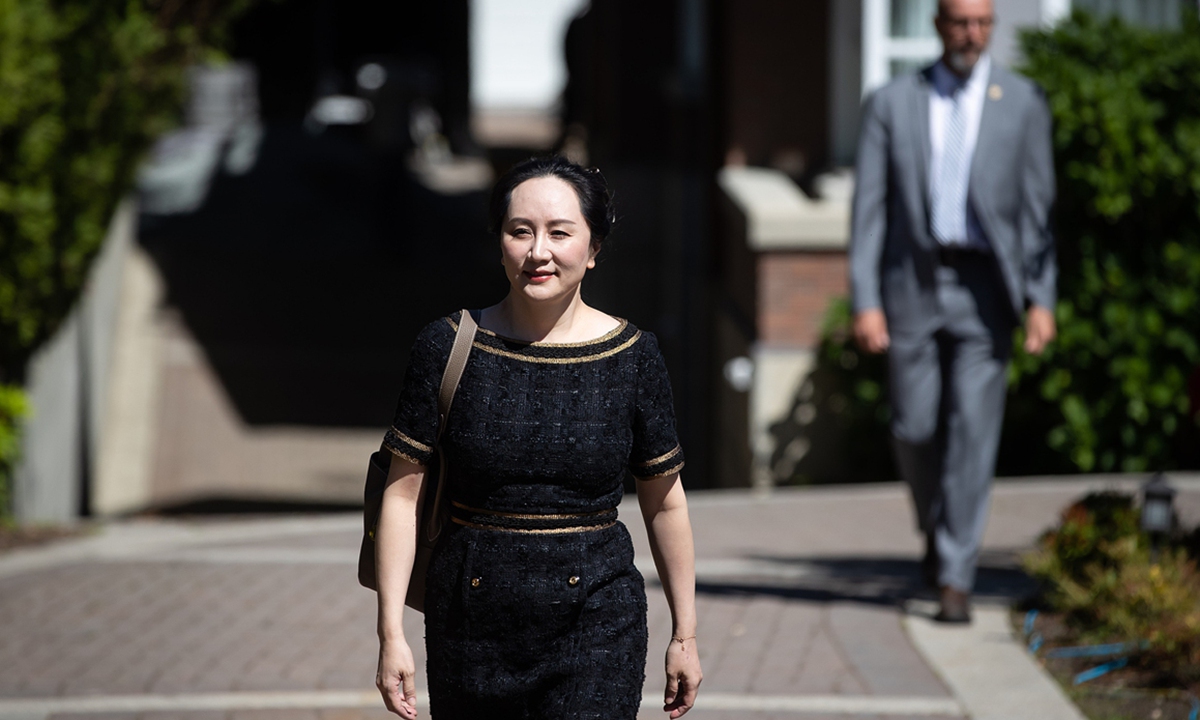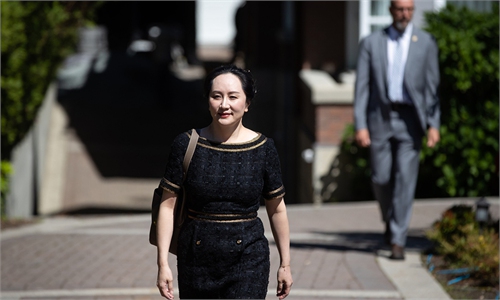
Meng Wanzhou Photo: VCG
Canada has abandoned free trade negotiations with China, the country's Foreign Affairs Minister François-Philippe Champagne said in an interview to The Globe and Mail, citing no existing conditions for continuing the talks.
Economic and trade cooperation used to be an important engine for the development of the China-Canada relationship when bilateral economic ties played a leading role in their friendly exchanges. Unfortunately, the good old days seem to have been lost since the illegal detention of Huawei top executive Meng Wanzhou at the Vancouver International Airport in December 2018.
Champagne's comment is the latest example of the increasingly deteriorating China-Canada relationship, which many observers believe has hit the lowest ebb in decades, an unusual state for two countries that have no history issues or conflicts of fundamental interests before.
Over the past many years, China and Canada have seen their cooperation areas expand constantly, from trade in goods to modern services, innovation, tourism, culture, and education, among others. China has been Canada's second largest trading partner, export destination and import market. It is the prospect of the ever-enlarging benefits to be brought about by a free trade agreement that have driven the two governments to the same negotiation table.
But things changed a lot as bilateral relations have encountered great difficulties since Justine Trudeau became Prime Minister of Canada three years ago. The political foundation and will of a China-Canada free trade agreement has been severely undermined by his government's playing the conspirator role in arresting Ms Meng while she was transferring a plane in Vancouver.
Canada's accomplice role to help the US government contain China is sufficient enough to show that its politicians don't take economic ties with China seriously, and in their eyes, such ties could be sacrificed for interim political interests.
Some Canadian politicians repeatedly criticized China for "coercive diplomacy," but they have turned a blind eye to Ms Meng's illegal arrest at the hands of Canadian and US intelligence organs that has fundamentally altered the basis of bilateral relations.
Meng's case was categorically a political prosecution against a Chinese national orchestrated by the US government to suppress Huawei. The Canadian authorities acted as an accomplice of the US government and made an outrageous mistake. Unless Ms Meng is released and send home to China, Chinese people won't forgive the Canadian government.
We hope the Canadian side could reflect on the current situation for bilateral ties and make a right decision on Meng's case so as to create conditions for the China-Canada relationship to get back onto a normal track at the earliest. Otherwise, both economies will suffer the repercussions in more than just a free trade agreement.


